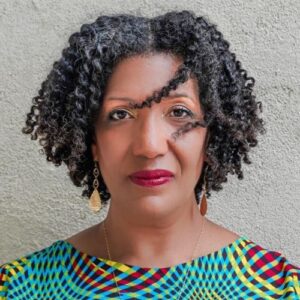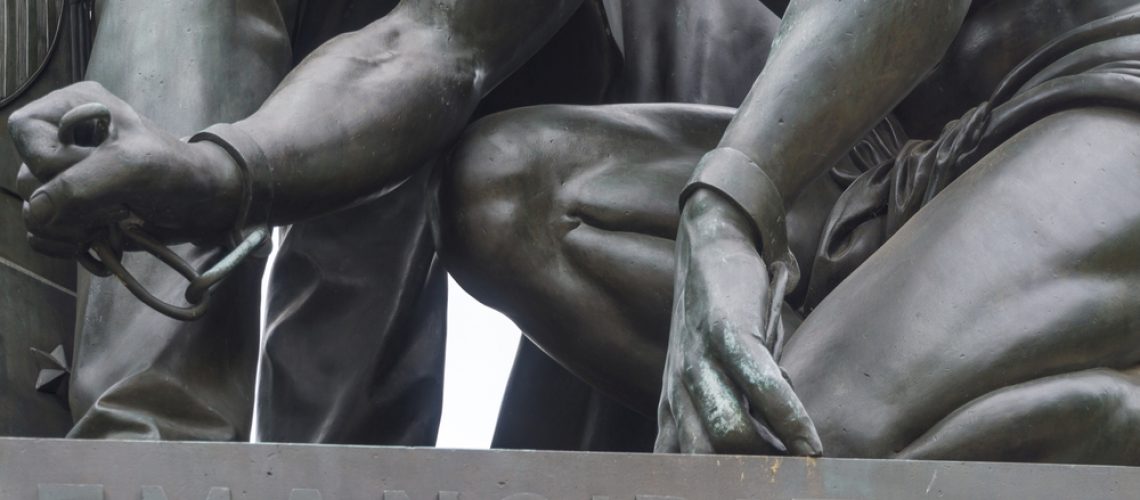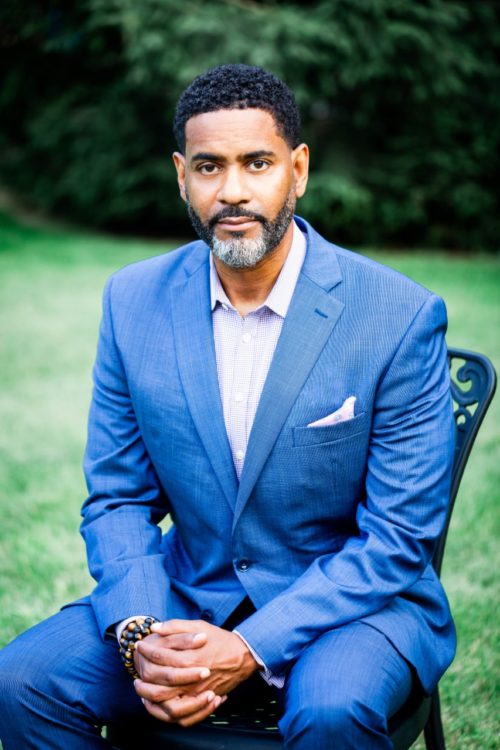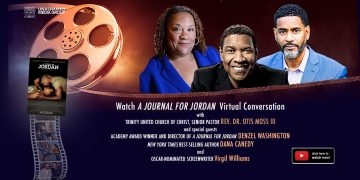Juneteenth, now designated a federal holiday, commemorates the emancipation of enslaved African Americans in the United States. It is believed to be the oldest African American holiday, with annual celebrations dating back to 1866, spanning across the United States. During the week of June 20th, Freedom Road US, will host a group of 200 people traveling to Charleston, South Carolina, for the Est. 1619 Pilgrimage. Rev. Dr. Otis Moss III, Senior Pastor of Trinity United Church of Christ, and members of the congregation are also attending.
Freedom Road US

Lisa Sharon Harper, a prolific writer and speaker, and founder of Freedom Road US has assembled a prolific and diverse team of leading experts, advocates, and trainers dedicated to shrinking what Harper calls “The Narrative Gap” in our nation.
As Harper shared recently, “The purpose of pilgrimage is transformation; the goal is to be transformed by soaking in the narratives of those whose narratives have been covered or hidden. We are changed, as we pilgrimage through the stories of others and ourselves.
Teaching Moments in Charleston
In commemorating Juneteenth, it is important to take a look back into our history to understand who we are as people of African descent living in Diaspora. In doing so, we must educate ourselves about the history of enslaved Africans in Charleston, South Carolina. Between 150,000 – 200,000 enslaved Africans passed through the ports of Charleston in nearly 1,000 cargos between the founding of the Carolina colony in 1670 and the legal prohibition of the Trans-Atlantic slave trade by the U.S. Congress in 1808. These numbers attribute to the fact that 80% – 90% of African Americans in the United States can trace their ancestry back to Charleston, South Carolina, which was a popular port for British slave ships.
Harper shared that Charleston is one of the places where decisions about enslaved Africans and African Americans had the greatest impact. “The land in Charleston is some of the most sacred land of our nation. There is nothing more powerful than standing on the land where things happened. During these pilgrimages, we can hear the stories of what the land tells; it is the land that witnessed the auctioning block of humans being sold and forever ripped from their families,” she added. The group has plans to visit the Gullah community and many other historical sites around the Charleston area. “We will stand on the ground and walk through quarters where enslaved Africans were held in six cabins that held 300 slaves. We will listen to the fields and cabins as they speak to us,” said Harper. “We will be transformed through this experience, as we hear the words of the people in the communities who are experts on this subject and share with us the experiences of enslaved people,” she added. “It is the pilgrimage experience that ignites all of the senses – seeing, hearing, smelling, tasting, touching – and also deals with the inner life. In addition, there will be spiritual formation guides and coping and resilient specialists helping the group with what we are feeling and how to process our feelings. This pilgrimage, the first of its kind for Freedom Road US, involves the whole person and not just the mind; our whole bodies are immersed,” Harper shared.
A Pastor’s Reflection of Pilgrimage
Rev. Dr. Otis Moss III shared that Trinity United Church of Christ has been involved in Diaspora tours for decades. As Trinity’s Senior Pastor, he has led two pilgrimages, traveling to Ghana for its “Year of Return” in 2019 and to Ethiopia in 2017. “In commemoration of 1619, I felt it would be appropriate to bring a group to Charleston, where over 50% of people of African descent landed. Charleston and South Carolina are a repository of incredible black culture that is specific to the Gullah people,” he added. “Not only was it a port for boats bringing enslaved Africans to America, it was also the site for black enslaved resistance,” said Moss.
Dr. Moss shared, “It is a vision of Trinity’s ministry to expose people of African descent to the wide, complex diversity of our people across the Diaspora. There are places within the United States that are rich with history and are key to connecting with the spirit of our people. Spiritually, South Carolina is filled with churches, also known as “praise houses” or spaces known as ‘brush or hush harbors’ where people worshiped in rural areas away from the glance and ear of the enslaver. Our ancestors plotted, praised, and educated,” he added.
Pilgrimage as Learning Experience
Another group traveling to Charleston consists of over 20 students of Dr. Moss’ Prophetic Preaching Laboratory at Auburn Seminary who have been charged to keep journals, write, record, and interview those who will be participating with the 1619 trip. These audio recordings will be curated for a limited series podcast where others can learn from those on the pilgrimage and also listen to portions of the lectures presented by select historians throughout the pilgrimage.
For more information about Freedom Road US, visit www.freedomroad.us.
Donna Hammond is a contributing writer and seminarian. Follow her on Twitter, @DeeLois623 and Facebook, DeeLois Speaks.





